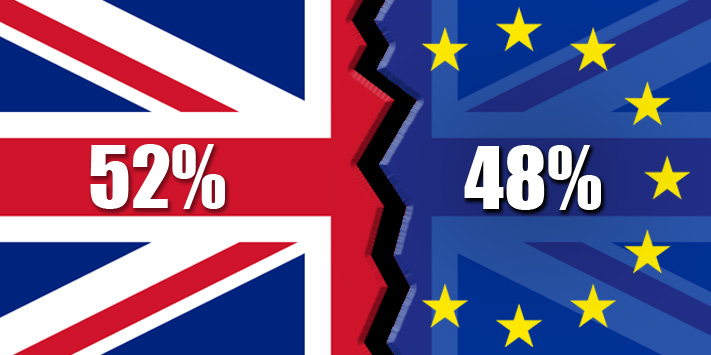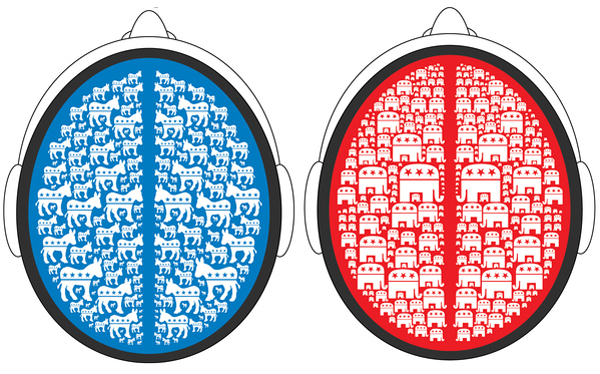In 2004, mid way through the Bush v Gore Presidential campaign, my sister and I started feeling uncomfortable with each other. It actually included her husband too, but he didn’t disturb me as much. It was Cindy who bothered me the most. Because, well, she was/is my sister. My twin sister.
We grew up in a troubled household of my feuding parents, each of them taking turns at spiteful, and irrevocably family damaging behavior. Cindy and I had our differences in personality to be sure. I knew deep down it had less to do with our tumultuous family life than I thought it once did. We fought about stupid things that adolescents fight about. Toys, TV, territory, familial attention, love.
But, still, we had a thread of similarity, familiarity, and kinship. The things that have been written ad nauseum about twins. Fraternal or identical. After all, unless you are separated at birth, your mere identical ages, being born of the same parents, at the exact (more or less) moment in time, connect you in an indisputably unique way.
Life changes all of us as time goes. Excepting the deliberate, and quite frankly, strange actions of some twins who purposefully live life as though they were one, its impossible for any two individuals to experience life the same way.
Somewhere along the line, seemingly around the 2004 campaign, my sister and I charted divergent paths in our outlooks on politics, if not life. We were raised in a liberal, democratic home. Left middle at best. I stayed that way, albeit more cynical and disappointed. Cindy did not. In 2004 it changed for her. I don’t know how it bubbled up, whether coming from her husband, who also abandoned his family’s liberal roots, her neighbors, the region she lived in, or the pollution from Fox News she surrendered to as media pasttime of choice, she grew into a vocal force that was never part of who she was in the forty five plus years prior. It was the damnedest thing.
The ten years since past has dimmed much of the memory of our conflicts during those years, but much is still there on her side. I have forgiven her of all of it, if that’s the right choice of words, but the lasting effect, on me at least, is sadness that we have drifted so far apart because of, what should be a side story to who we are as human beings, brother and sister, and family.
I have heard this is a story played out many times among friends and families since, and after that campaign. Its a reflection of what has divided our country in very bleak ways. The article below tries to makes some sense of it intellectually, perhaps without actionary vision many of us might be craving for to solve this problem. Either way, it does help to read things like this, to encourage me that patient, analytic observance of human behavior is still a big part of understanding ourselves.
You’re smart. You’re liberal. You’re well informed. You think conservatives are narrow-minded. You can’t understand why working-class Americans vote Republican. You figure they’re being duped. You’re wrong.
This isn’t an accusation from the right. It’s a friendly warning from Jonathan Haidt, a social psychologist at the University of Virginia who, until 2009, considered himself a partisan liberal. In “The Righteous Mind,” Haidt seeks to enrich liberalism, and political discourse generally, with a deeper awareness of human nature. Like other psychologists who have ventured into political coaching, such as George Lakoff and Drew Westen, Haidt argues that people are fundamentally intuitive, not rational. If you want to persuade others, you have to appeal to their sentiments. But Haidt is looking for more than victory. He’s looking for wisdom. That’s what makes “The Righteous Mind” well worth reading. Politics isn’t just about manipulating people who disagree with you. It’s about learning from them.
Haidt seems to delight in mischief. Drawing on ethnography, evolutionary theory and experimental psychology, he sets out to trash the modern faith in reason. In Haidt’s retelling, all the fools, foils and villains of intellectual history are recast as heroes. David Hume, the Scottish philosopher who notoriously said reason was fit only to be “the slave of the passions,” was largely correct. E. O. Wilson, the ecologist who was branded a fascist for stressing the biological origins of human behavior, has been vindicated by the study of moral emotions. Even Glaucon, the cynic in Plato’s “Republic” who told Socrates that people would behave ethically only if they thought they were being watched, was “the guy who got it right.”
To the question many people ask about politics — Why doesn’t the other side listen to reason? — Haidt replies: We were never designed to listen to reason. When you ask people moral questions, time their responses and scan their brains, their answers and brain activation patterns indicate that they reach conclusions quickly and produce reasons later only to justify what they’ve decided. The funniest and most painful illustrations are Haidt’s transcripts of interviews about bizarre scenarios. Is it wrong to have sex with a dead chicken? How about with your sister? Is it O.K. to defecate in a urinal? If your dog dies, why not eat it? Under interrogation, most subjects in psychology experiments agree these things are wrong. But none can explain why.
The problem isn’t that people don’t reason. They do reason. But their arguments aim to support their conclusions, not yours. Reason doesn’t work like a judge or teacher, impartially weighing evidence or guiding us to wisdom. It works more like a lawyer or press secretary, justifying our acts and judgments to others. Haidt shows, for example, how subjects relentlessly marshal arguments for the incest taboo, no matter how thoroughly an interrogator demolishes these arguments.
To explain this persistence, Haidt invokes an evolutionary hypothesis: We compete for social status, and the key advantage in this struggle is the ability to influence others. Reason, in this view, evolved to help us spin, not to help us learn. So if you want to change people’s minds, Haidt concludes, don’t appeal to their reason. Appeal to reason’s boss: the underlying moral intuitions whose conclusions reason defends.
Haidt’s account of reason is a bit too simple — his whole book, after all, is a deployment of reason to advance learning — and his advice sounds cynical. But set aside those objections for now, and go with him. If you follow Haidt through the tunnel of cynicism, you’ll find that what he’s really after is enlightenment. He wants to open your mind to the moral intuitions of other people.
In the West, we think morality is all about harm, rights, fairness and consent. Does the guy own the chicken? Is the dog already dead? Is the sister of legal age? But step outside your neighborhood or your country, and you’ll discover that your perspective is highly anomalous. Haidt has read ethnographies, traveled the world and surveyed tens of thousands of people online. He and his colleagues have compiled a catalog of six fundamental ideas that commonly undergird moral systems: care, fairness, liberty, loyalty, authority and sanctity. Alongside these principles, he has found related themes that carry moral weight: divinity, community, hierarchy, tradition, sin and degradation.
The worldviews Haidt discusses may differ from yours. They don’t start with the individual. They start with the group or the cosmic order. They exalt families, armies and communities. They assume that people should be treated differently according to social role or status — elders should be honored, subordinates should be protected. They suppress forms of self-expression that might weaken the social fabric. They assume interdependence, not autonomy. They prize order, not equality.
These moral systems aren’t ignorant or backward. Haidt argues that they’re common in history and across the globe because they fit human nature. He compares them to cuisines. We acquire morality the same way we acquire food preferences: we start with what we’re given. If it tastes good, we stick with it. If it doesn’t, we reject it. People accept God, authority and karma because these ideas suit their moral taste buds. Haidt points to research showing that people punish cheaters, accept many hierarchies and don’t support equal distribution of benefits when contributions are unequal.
You don’t have to go abroad to see these ideas. You can find them in the Republican Party. Social conservatives see welfare and feminism as threats to responsibility and family stability. The Tea Party hates redistribution because it interferes with letting people reap what they earn. Faith, patriotism, valor, chastity, law and order — these Republican themes touch all six moral foundations, whereas Democrats, in Haidt’s analysis, focus almost entirely on care and fighting oppression. This is Haidt’s startling message to the left: When it comes to morality, conservatives are more broad-minded than liberals. They serve a more varied diet.
This is where Haidt diverges from other psychologists who have analyzed the left’s electoral failures. The usual argument of these psycho-pundits is that conservative politicians manipulate voters’ neural roots — playing on our craving for authority, for example — to trick people into voting against their interests. But Haidt treats electoral success as a kind of evolutionary fitness test. He figures that if voters like Republican messages, there’s something in Republican messages worth liking. He chides psychologists who try to “explain away” conservatism, treating it as a pathology. Conservatism thrives because it fits how people think, and that’s what validates it. Workers who vote Republican aren’t fools. In Haidt’s words, they’re “voting for their moralinterests.”
One of these interests is moral capital — norms, practices and institutions, like religion and family values, that facilitate cooperation by constraining individualism. Toward this end, Haidt applauds the left for regulating corporate greed. But he worries that in other ways, liberals dissolve moral capital too recklessly. Welfare programs that substitute public aid for spousal and parental support undermine the ecology of the family. Education policies that let students sue teachers erode classroom authority. Multicultural education weakens the cultural glue of assimilation. Haidt agrees that old ways must sometimes be re-examined and changed. He just wants liberals to proceed with caution and protect the social pillars sustained by tradition.
Another aspect of human nature that conservatives understand better than liberals, according to Haidt, is parochial altruism, the inclination to care more about members of your group — particularly those who have made sacrifices for it —than about outsiders. Saving Darfur, submitting to the United Nations and paying taxes to educate children in another state may be noble, but they aren’t natural. What’s natural is giving to your church, helping your P.T.A. and rallying together as Americans against a foreign threat.
How far should liberals go toward incorporating these principles? Haidt says the shift has to be more than symbolic, but he doesn’t lay out a specific policy agenda. Instead, he highlights broad areas of culture and politics — family and assimilation, for example — on which liberals should consider compromise. He urges conservatives to entertain liberal ideas in the same way. The purpose of such compromises isn’t just to win elections. It’s to make society and government fit human nature.
The hardest part, Haidt finds, is getting liberals to open their minds. Anecdotally, he reports that when he talks about authority, loyalty and sanctity, many people in the audience spurn these ideas as the seeds of racism, sexism and homophobia. And in a survey of 2,000 Americans, Haidt found that self-described liberals, especially those who called themselves “very liberal,” were worse at predicting the moral judgments of moderates and conservatives than moderates and conservatives were at predicting the moral judgments of liberals. Liberals don’t understand conservative values. And they can’t recognize this failing, because they’re so convinced of their rationality, open-mindedness and enlightenment.
Haidt isn’t just scolding liberals, however. He sees the left and right as yin and yang, each contributing insights to which the other should listen. In his view, for instance, liberals can teach conservatives to recognize and constrain predation by entrenched interests. Haidt believes in the power of reason, but the reasoning has to be interactive. It has to be other people’s reason engaging yours. We’re lousy at challenging our own beliefs, but we’re good at challenging each other’s. Haidt compares us to neurons in a giant brain, capable of “producing good reasoning as an emergent property of the social system.”
Our task, then, is to organize society so that reason and intuition interact in healthy ways. Haidt’s research suggests several broad guidelines. First, we need to help citizens develop sympathetic relationships so that they seek to understand one another instead of using reason to parry opposing views. Second, we need to create time for contemplation. Research shows that two minutes of reflection on a good argument can change a person’s mind. Third, we need to break up our ideological segregation. From 1976 to 2008, the proportion of Americans living in highly partisan counties increased from 27 percent to 48 percent. The Internet exacerbates this problem by helping each user find evidence that supports his views.
How can we achieve these goals? Haidt offers a Web site, civilpolitics.org, on which he and his colleagues have listed steps that might help. One is holding open primaries so that people outside each party’s base can vote to nominate moderate candidates. Another is instant runoffs, so that candidates will benefit from broadening their appeal. A third idea is to alter redistricting so that parties are less able to gerrymander partisan congressional districts. Haidt also wants members of Congress to go back to the old practice of moving their families to Washington, so that they socialize with one another and build a friendly basis on which to cooperate.
Many of Haidt’s proposals are vague, insufficient or hard to implement. And that’s O.K. He just wants to start a conversation about integrating a better understanding of human nature — our sentiments, sociality and morality — into the ways we debate and govern ourselves. At this, he succeeds. It’s a landmark contribution to humanity’s understanding of itself.
But to whom is Haidt directing his advice? If intuitions are unreflective, and if reason is self-serving, then what part of us does he expect to regulate and orchestrate these faculties? This is the unspoken tension in Haidt’s book. As a scientist, he takes a passive, empirical view of human nature. He describes us as we have been, expecting no more. Based on evolution, he argues, universal love is implausible: “Parochial love . . . amplified by similarity” and a “sense of shared fate . . . may be the most we can accomplish.” But as an author and advocate, Haidt speaks to us rationally and universally, as though we’re capable of something greater. He seems unable to help himself, as though it’s in his nature to call on our capacity for reason and our sense of common humanity — and in our nature to understand it.
You don’t have to believe in God to see this higher capacity as part of our nature. You just have to believe in evolution. Evolution itself has evolved: as humans became increasingly social, the struggle for survival, mating and progeny depended less on physical abilities and more on social abilities. In this way, a faculty produced by evolution — sociality — became the new engine of evolution. Why can’t reason do the same thing? Why can’t it emerge from its evolutionary origins as a spin doctor to become the new medium in which humans compete, cooperate and advance the fitness of their communities? Isn’t that what we see all around us? Look at the global spread of media, debate and democracy.
Haidt is part of this process. He thinks he’s just articulating evolution. But in effect, he’s also trying to fix it. Traits we evolved in a dispersed world, like tribalism and righteousness, have become dangerously maladaptive in an era of rapid globalization. A pure scientist would let us purge these traits from the gene pool by fighting and killing one another. But Haidt wants to spare us this fate. He seeks a world in which “fewer people believe that righteous ends justify violent means.” To achieve this goal, he asks us to understand and overcome our instincts. He appeals to a power capable of circumspection, reflection and reform.
If we can harness that power — wisdom — our substantive project will be to reconcile our national and international differences. Is income inequality immoral? Should government favor religion? Can we tolerate cultures of female subjugation? And how far should we trust our instincts? Should people who find homosexuality repugnant overcome that reaction?
Haidt’s faith in moral taste receptors may not survive this scrutiny. Our taste for sanctity or authority, like our taste for sugar, could turn out to be a dangerous relic. But Haidt is right that we must learn what we have been, even if our nature is to transcend it.
William Saletan, Slate’s national correspondent, is the author of “Bearing Right: How Conservatives Won the Abortion War.”



